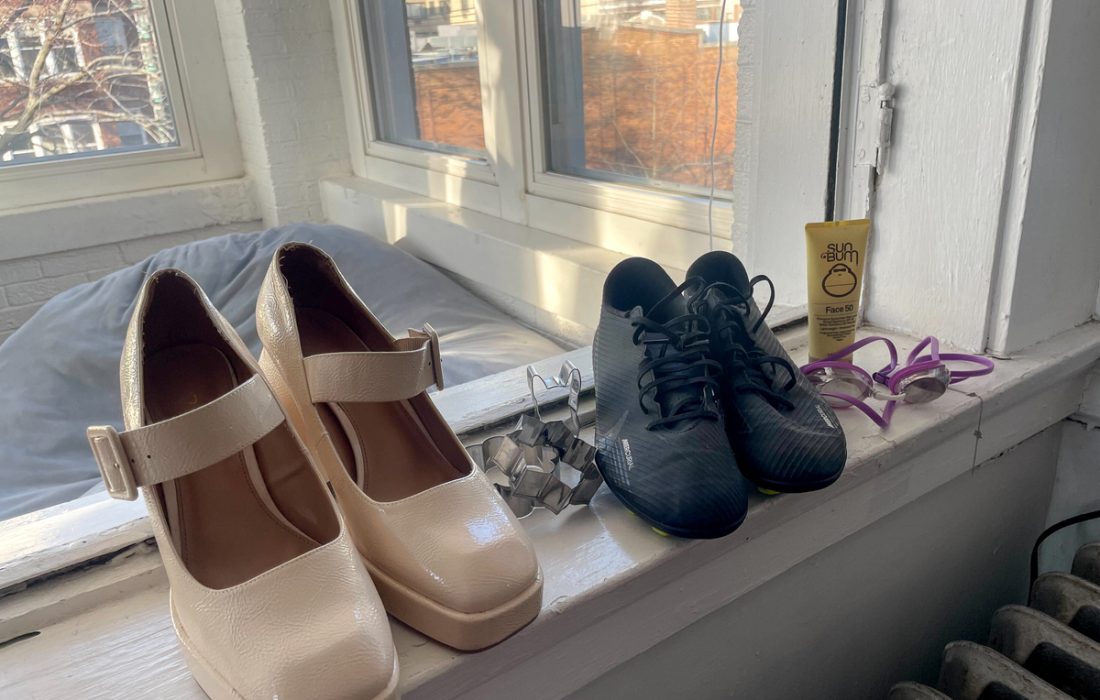Writer Marisa Panella talks about how quitting can be a positive experience.
The Joys of Being a Quitter
Throughout my childhood, I tried a lot of different activities.
I’ve been a mediocre basketball player, comedic relief in school plays, yearbook photographer, licensed soccer referee, chef’s assistant and student council president. Shockingly, this isn’t even a complete list.
Safe to say, I’ve done a lot. Do I still do all these things? Absolutely not. But a lot of trying and a lot of failing taught me there is so much joy in being a quitter.
I was always one of those girls who wanted to do it all, which aligned with my parents’ no-quit attitude.
It turned out to be disastrous. I knew if I really wanted to quit, I had the power to. But after excelling in some activities throughout my childhood, I put immense pressure on myself to succeed in everything
I had big dreams of going to a top-rated college, being popular at school, and proving to myself and those around me that I was someone special. Over time, what was once enjoyable quickly became a list of duties piling up and suffocating me.
A 15-year-old girl shouldn’t be waking up at 5:30 a.m. and going to bed at midnight constantly. It wasn’t a feasible lifestyle to keep up, but I kept pushing myself. I didn’t want to be faced with the embarrassment I feared would come with letting things go.
There are negative connotations surrounding quitting, like being viewed as a failure or less-than by others. The brain often experiences shame, guilt and fear in relation to quitting, according to the BBC. These are all emotions I dealt with.
I latched onto the fear of disappointing the people around me if I couldn’t keep up anymore or maintain the standards expected of me. It was extremely difficult for me to sit in the uncomfortable feelings surrounding the idea of quitting.
The perceptions around quitting stole my joy of trying new things. I feared the consequences of joining an activity I didn’t like, so I stuck to my routines. They were routines I was growing to resent — but the fear kept me trapped.
I learned the hard way those ideals I held were completely false. I wasn’t happy, and giving 50% to a million things was much worse for everyone around me than giving 100% to just a few things.
As my grades slipped, my friendships suffered and my depression worsened. I was finally met with the moment where I decided enough was enough. Water polo was the first thing I quit in high school, mostly because the sport I once adored was making me completely and utterly miserable.
I left the team and, after being trapped in the same cycle for so long, I finally felt relieved. While I carried a lot of shame and guilt with me, looking back, I should’ve been proud of myself for prioritizing my needs.
The COVID-19 pandemic took over shortly after I left the team and the activities I both loved and resented were put on pause. My life felt empty in some ways, but my life grew immensely fuller in the ways that mattered the most.
I could sleep. I could talk to my friends. I could read. I could write. I could think.
Three years later and 1,800 miles from home, I’m in a new city with a brand new attitude — things feel different in the best way. I went to club and career fairs, joined club rugby and rushed a sorority.
Club rugby was the first activity I tried in college that I genuinely enjoyed but had to let go. The people on the team were beyond lovely and I found the sport to be thrilling.
It was a difficult decision to leave — there are days when I still feel the guilt of not returning for a second season and miss the teammates I met. However, the position I played caused me severe back pain. I had to prioritize my coursework and both my physical and mental health.
As I sit here and write, I’m a part of two on-campus organizations, my sorority and The Phoenix. My life is filled with my friendships and passions — both of which I finally have time to pursue.
I discovered how much freedom there is in quitting and how important it is to try new things and fail over and over again to find what you truly love.
If something doesn’t serve your emotional needs, if the thought of it makes you anxious, if it’s not helping you chase your dreams or achieve your goals, quit. We care so much about what people think about us and the perceptions of the community around us, but it’s not what truly matters.
I’m an adult. I don’t have someone peering over my shoulder. The goals I have are the ones I desire, not ones that my parents or teachers or anyone else expects of me.
I’ve found joy in quitting because I can take care of what matters most to me. I sleep better, I smile more and the world around me seems a lot lighter because I know what I can handle. I’ve reclaimed my power to say no and live a life full of the things I truly love.
Go ahead and call me a quitter, but I relish in the freedom of letting go.
Feature image by Marisa Panella / The Phoenix
Topics
Get the Loyola Phoenix newsletter straight to your inbox!



